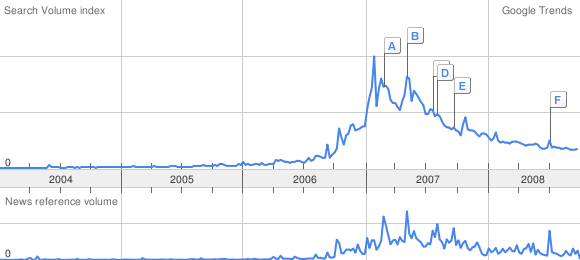For a minute, I’d like to think about The Announcement in terms of problems and solutions.
Problem: We don’t have enough non-developing contributors in Debian
Solution in The Announcement: Give them special, official, statuses in the Debian community, so they are rewarded for their work.
Alternate solution: Are they really looking forward this status? Aren’t we just thinking that they are just as power-hungry as we are? Last time I checked, the Debian community wasn’t really welcoming non-developers. It isn’t a problem of official status. We have to work on ourselves to make Debian a better place to be for non-developing contributors. Also, giving those people a second-class citizenship, that won’t be widely recognized — “Debian Member” instead of “Debian Developer”, isn’t going to help. (or even worse, “Debian Contributor”, which doesn’t give any right except an email address).
Problem: We have a trust and security problem. It’s difficult to give upload rights and access to Debian machines to more than 1000 people, with some of them not being active anymore, or not having much experience with security (in the case of non-developing contributors).
Solution in The Announcement: Remove rights based on classes of developers, so the group of people having full access stays within manageable boundaries.
Alternate solution: Have fine-grained control on who can do want.
Problem: DMs can’t get access to Debian resources because their keys aren’t managed by the Debian keyring team, but by another team.
Solution in The Announcement: Keyring managers will take care of the Debian Maintainers keyring too. In the past, the keyring managers were the cause for huge delays in the NM process. It has improved a lot recently, but it doesn’t mean that it will always be like that.
Alternate solution: Make the DM keyring team, the keyring managers, and DSA, work together on a solution. it doesn’t sound impossible. If that’s necessary, merge the DM keyring team and the keyring managers.
Problem: DM was done without the blessing of most of the members of the loosely defined group of powerful DDs (sometimes described as “cabal”).
Solution in The Announcement: Drop it, replace it with something very similar, but originating from the cabal.
Alternate solution: Why not keep it?
Problem: Clueless DDs advocate clueless contributors for DMs. Then those DMs upload crap to the archive. (Note: I don’t necessarily agree with that problem, that’s just a problem that the announcement tries to solve)
Solution in The Announcement: Require answering a few questions before becoming a DM. Remove the right for every DD to decide which DM can upload which package. Give that control only to the NM committee.
Alternate solution: If we can’t trust one DD to take the good decision about advocating someone for DM, we could require that each person needs to be advocated by two different DDs. Or three, four, five. Asking the DM to answer a few questions, whose answers he can probably get by asking around on IRC, is not going to improve the average level of our DMs or DDs.
I believe that there are real problems that need to be solved, but that the decisions announced don’t solve the real underlying problem. Here is what I’d like to see:
- Fine-grained access control for each DD or DM or …:
This would allow people to have specific rights inside Debian, like:
- Right to login on each debian.org host (a per-host switch)
- Right to upload packages for which the person is Maintainer or Uploader
- Right to upload any package
- Right to vote
All rights would default to “NO”. DDs would be allowed to change their rights for everything, while DMs would only be allowed to change specific rights. Of course, we need a secure way to change rights (HTTPS+confirmation using GPG, like the current “sudo password” thing?). But that would help with the security problem (you wouldn’t have access to all Debian hosts without enabling it). In fact, we already have that: many hosts require a switch to be enabled in LDAP before you can login, and we have tons of Unix groups to restrict access to specific areas of our infrastructure. I’m just proposing to extend that to basically everything, and to allow people to grant themselves some rights without going through DSA.
- Modified NM process for non-developing contributors, that would still include many P&P and T&S questions, but would give “Debian Developer” status without any upload rights. That way, non-developing contributor would have an official status, and will still be able to write “Debian Developer” in their resume. Giving a different status to those people just because we don’t think that they should have the right to upload any package doesn’t feel right.
Is that enough? Probably not. We need to be more welcoming towards non-developing contributors, which is a social problem, not a technical one. But we are not going to solve that in a GR.

